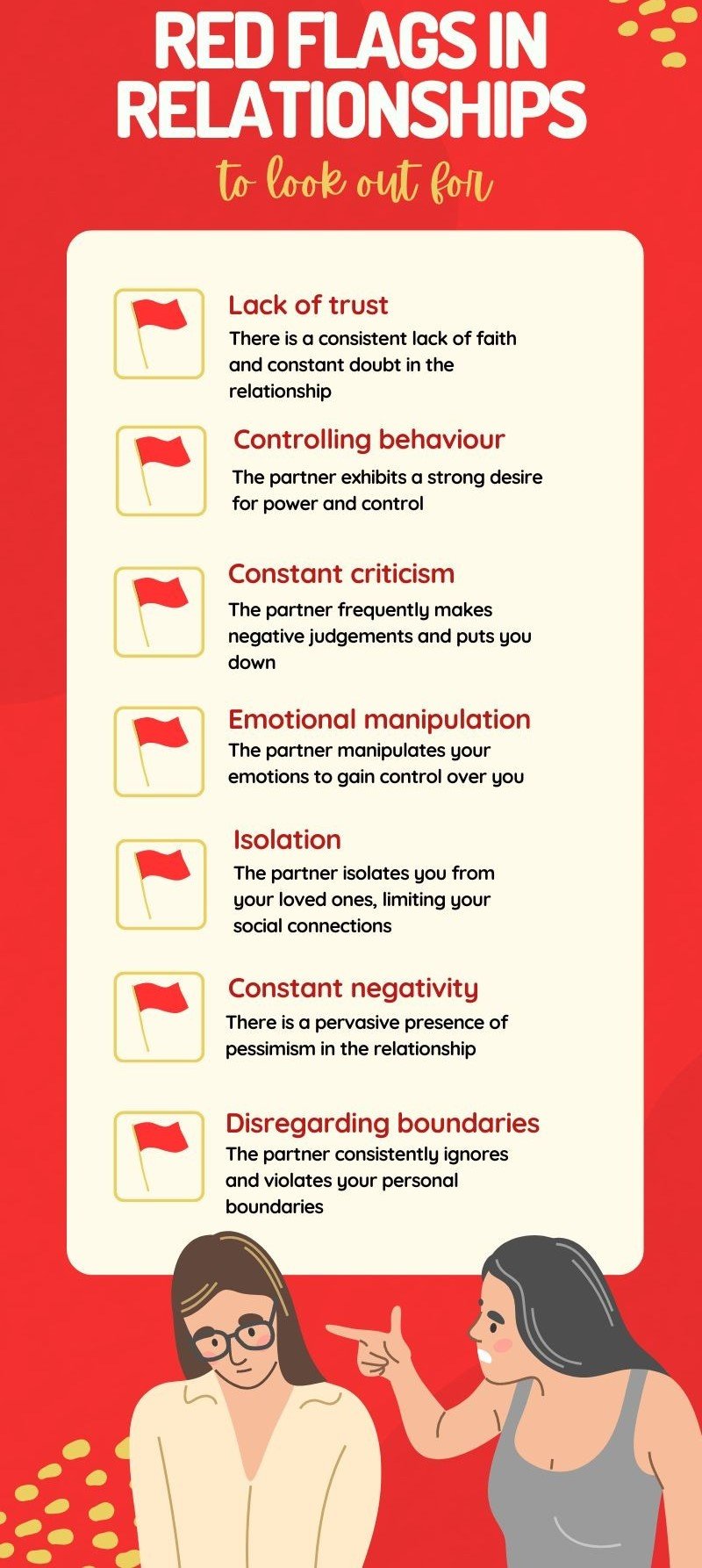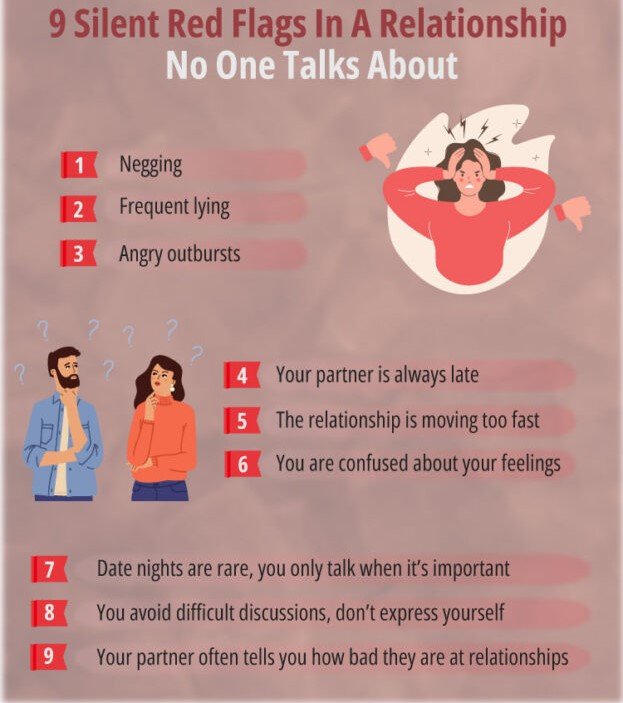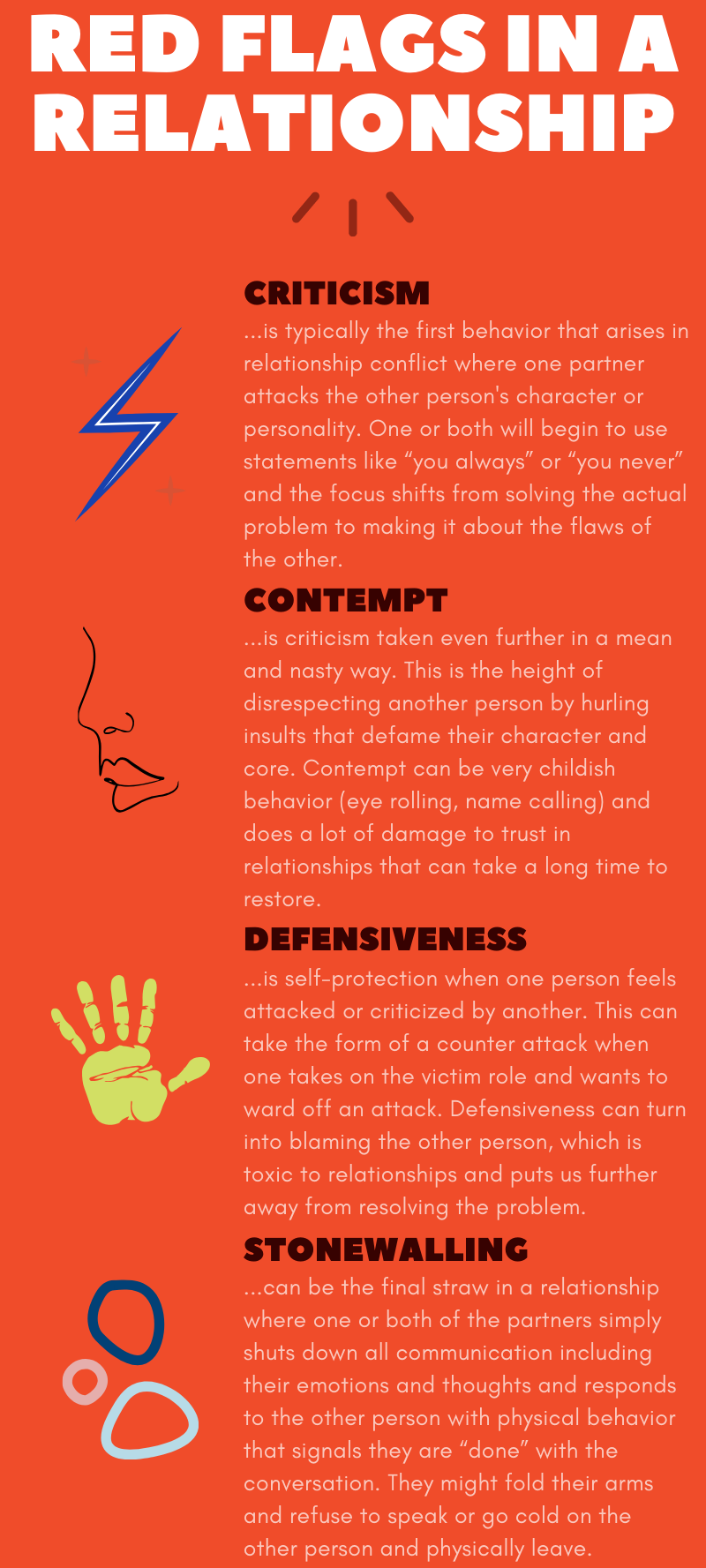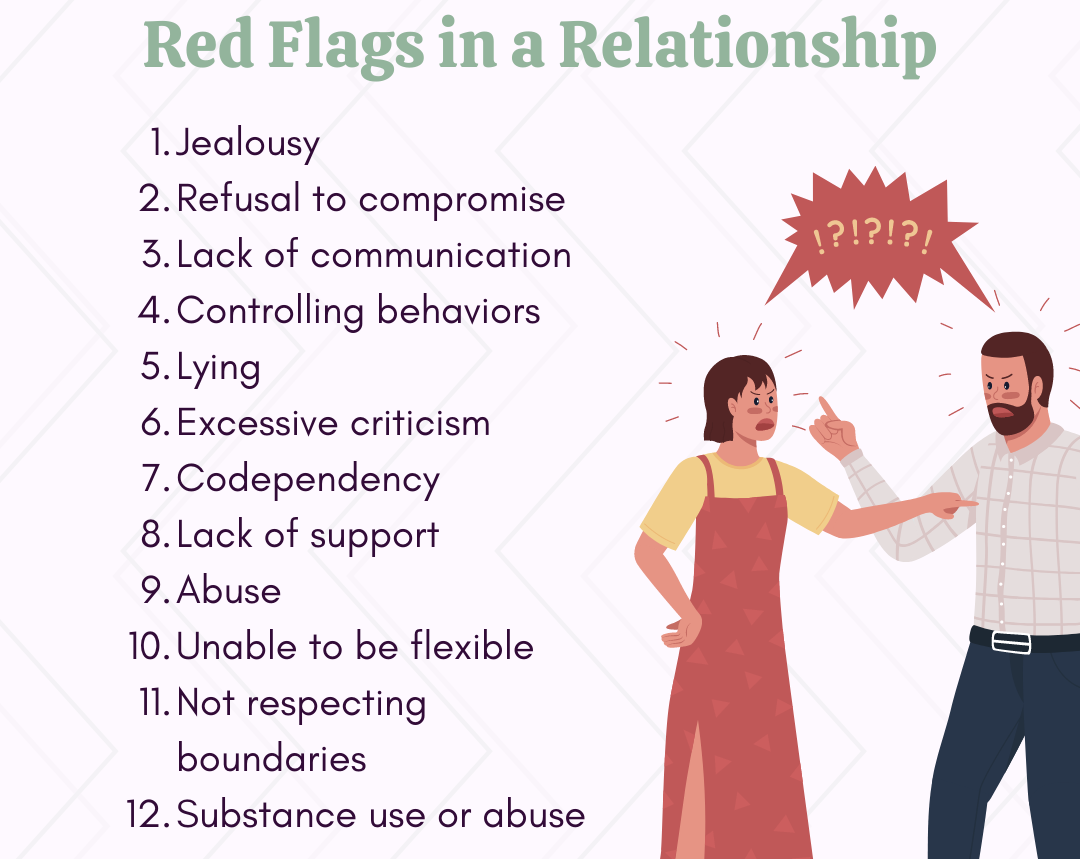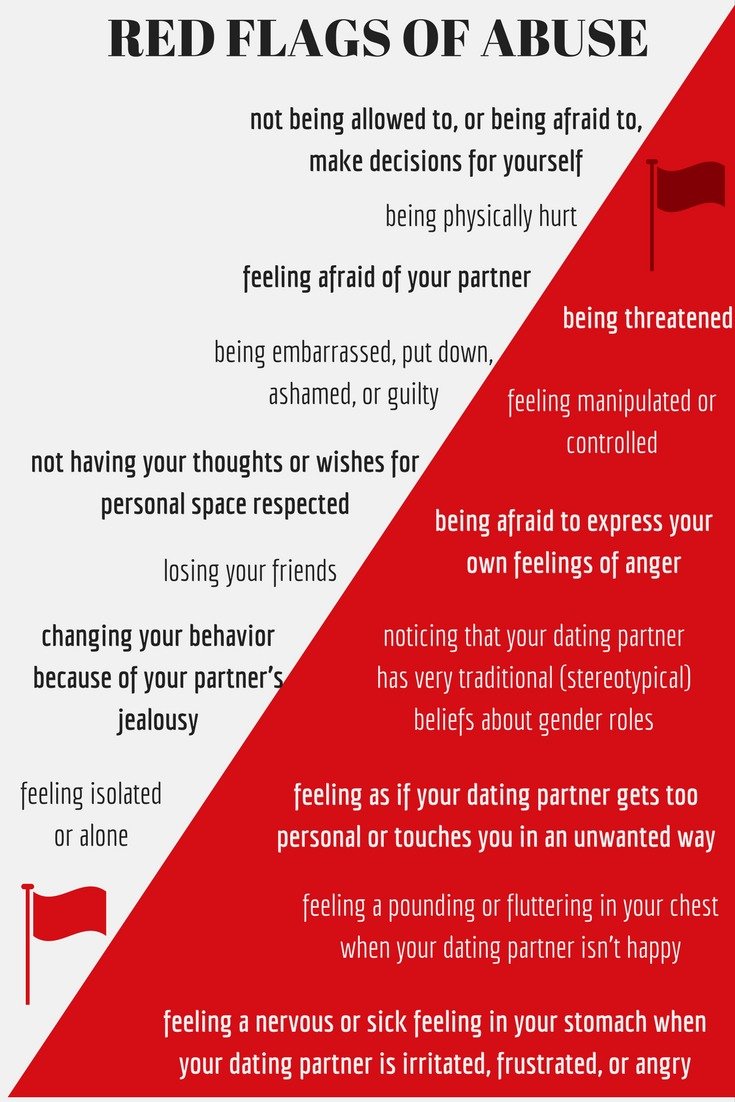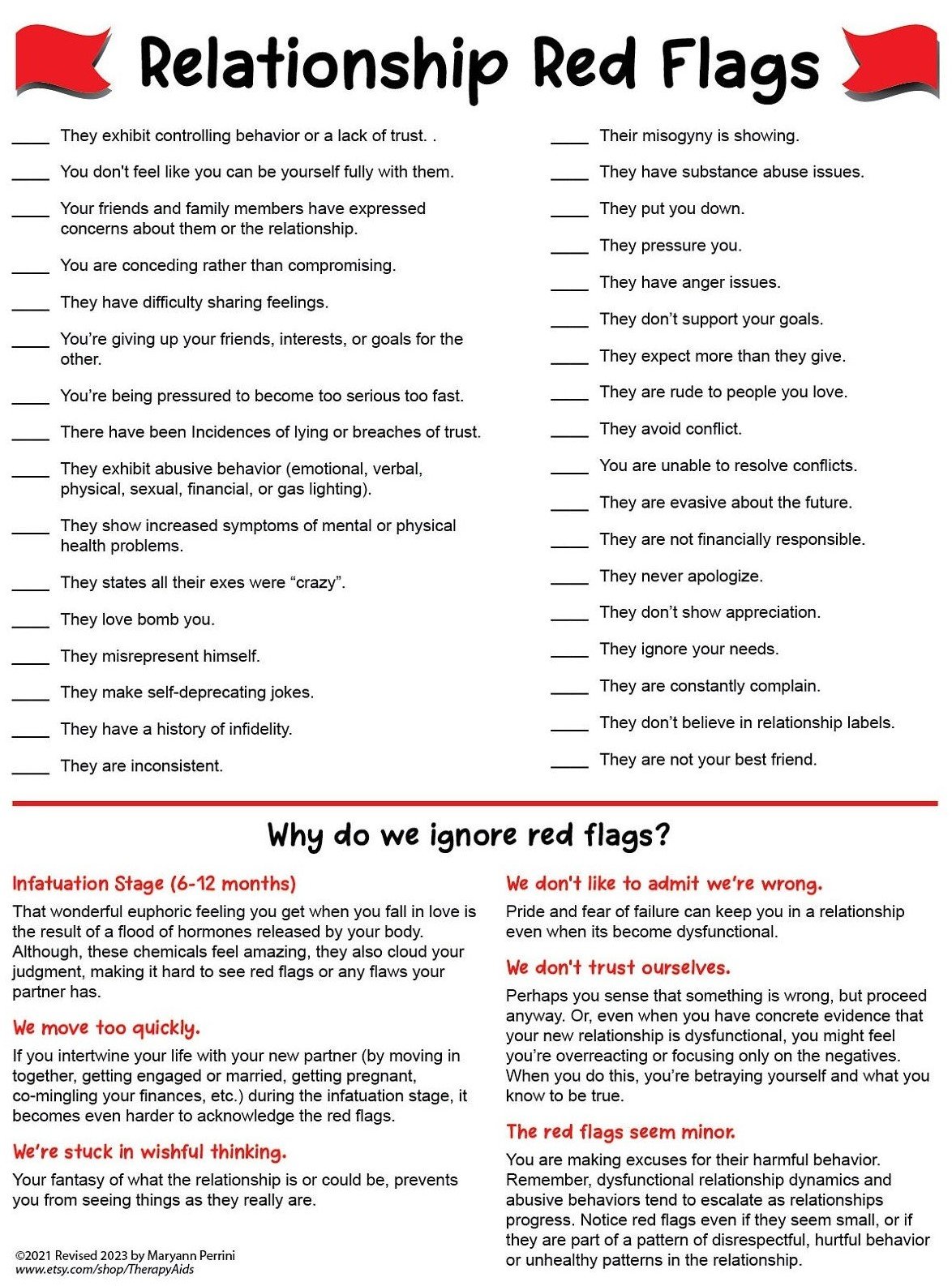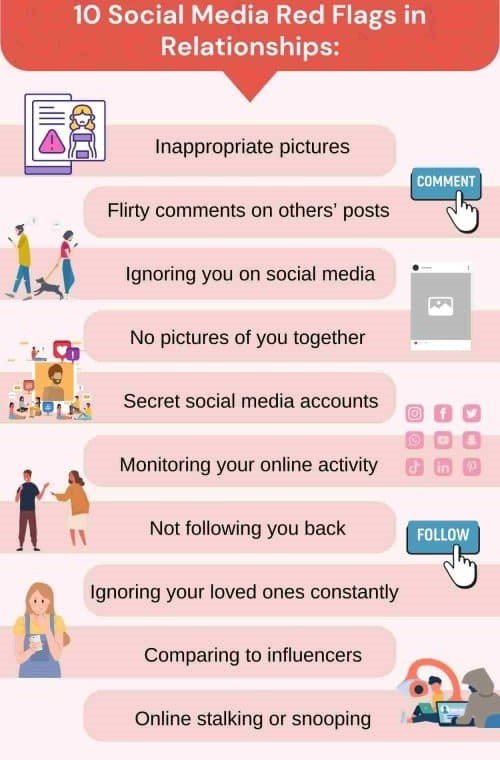Relationship Red Flags: Warning Signs to Watch Out For : In the early stages of a relationship, it’s common to view your partner through rose-colored glasses, focusing on their positive traits and overlooking potential issues. However, recognizing red flags early on can save you from future heartache and help you make informed decisions about your relationship. Here are some key warning signs to watch out for and why they matter.
Navigating Relationships: Spotting Warning Signs Early On
-
Lack of Communication
Healthy relationships are built on open and honest communication. If your partner consistently avoids meaningful conversations, shuts down when issues arise, or dismisses your feelings, it can signal deeper problems. Communication barriers can lead to misunderstandings, unresolved conflicts, and a lack of emotional intimacy. Pay attention to how your partner communicates and whether they are willing to work on improving it.
-
Controlling Behavior
A partner who tries to control aspects of your life, such as your social interactions, finances, or personal choices, can be a major red flag. Controlling behavior often stems from insecurity and a need for power. It can manifest subtly at first, like questioning your decisions or making you feel guilty for spending time with others, but can escalate over time. It’s important to maintain your autonomy and recognize that a healthy relationship respects boundaries and individuality. If you have a partner who tries to control you, it’s important to set clear boundaries or you can confide in professional Melbourne escorts for help.
-
Lack of Trust
Trust is a cornerstone of any healthy relationship. If your partner is constantly suspicious, accuses you of dishonesty without evidence, or invades your privacy by checking your phone or social media, it indicates a lack of trust. Trust issues can erode the foundation of your relationship, leading to constant tension and insecurity. A trustworthy partner should give you the benefit of the doubt and respect your privacy.
-
Jealousy and Possessiveness
While a little jealousy can be normal, excessive jealousy and possessiveness are concerning. If your partner frequently gets upset over innocent interactions, demands constant reassurance, or tries to isolate you from friends and family, it’s a sign of insecurity and control. These behaviors can lead to emotional manipulation and limit your freedom. It’s important to have a partner who trusts you and encourages your independence.
-
Disrespect and Criticism
Respect is essential for a healthy relationship. If your partner regularly belittles you, criticizes your appearance or abilities, or makes you feel inferior, it can damage your self-esteem and well-being. Disrespectful behavior often starts subtly but can escalate into emotional abuse. A loving partner should uplift and support you, not tear you down.

Disrespect and Criticism -
Avoiding Responsibility
A partner who consistently avoids taking responsibility for their actions, blames others for their problems, or refuses to admit when they’re wrong can be challenging to build a future with. This behavior indicates a lack of maturity and accountability, which are crucial for resolving conflicts and maintaining a healthy relationship. A responsible partner acknowledges their mistakes and works towards growth and improvement.
-
Emotional Unavailability
Emotional availability is key to forming a deep and meaningful connection. If your partner struggles to express their feelings, avoid vulnerability, or seems distant, it can create a barrier between you. Emotional unavailability can lead to feelings of loneliness and frustration, as you may find it difficult to connect on a deeper level. A partner who is willing to be emotionally open and supportive is essential for a fulfilling relationship.
-
Excessive Dependence
While it’s natural to rely on your partner for support, excessive dependence can be problematic. If your partner expects you to meet all their emotional, financial, or social needs, it can create an imbalanced and unhealthy dynamic. A healthy relationship involves mutual support and independence. It’s important to maintain your own interests, friendships, and sense of self. If you are not feeling fulfilled by your relationship, you can visit private escort girls in London to relax and refresh yourself.
-
Inconsistent Behavior
Consistency is important for building trust and stability in a relationship. If your partner’s behavior is unpredictable, swings between extreme affection and indifference, or frequently makes promises they don’t keep, it can be destabilizing. Inconsistent behavior can make you feel uncertain and anxious about the future of your relationship. A reliable partner should demonstrate consistent care and commitment.
-
History of Abusive Relationships
A partner with a history of abusive relationships, whether as a victim or perpetrator, may carry unresolved issues into your relationship. While everyone deserves a chance to change and heal, it’s important to proceed with caution and ensure that they have addressed their past and are committed to healthy relationship dynamics. Pay attention to patterns of behavior and seek professional help if needed.

History of Abusive Relationships -
Manipulative Behavior
Manipulation can take many forms, from guilt-tripping and gaslighting to playing mind games. If your partner frequently twists situations to make you doubt your perceptions, feelings, or sanity, it’s a major red flag. Manipulative behavior undermines your autonomy and self-worth. It’s important to recognize these tactics and seek someone like who communicates honestly and respects your perspective.
-
Substance Abuse Issues
Substance abuse can have a profound impact on a relationship, leading to instability, financial problems, and emotional distress. If your partner struggles with alcohol or drug addiction, it can create a volatile and unpredictable environment. It’s important to consider how their substance use affects your well-being and whether they are seeking help to address the issue.
-
Disregard for Boundaries
Respecting boundaries is crucial for maintaining a healthy relationship. If your partner frequently disregards your personal, emotional, or physical boundaries, it can indicate a lack of respect and consideration. This behavior can lead to discomfort and resentment. A caring partner should honor your boundaries and communicate openly about their own.
-
Lack of Support for Your Goals
A supportive partner encourages and celebrates your personal and professional achievements. If your partner dismisses your goals, belittles your ambitions, or shows a lack of interest in your success, it can be demoralizing. A healthy relationship involves mutual support and a shared investment in each other’s growth and happiness.
-
Ignoring Relationship Issues
Every relationship faces challenges, but ignoring or avoiding these issues can lead to resentment and disconnection. If your partner refuses to address problems, dismisses your concerns, or avoids seeking solutions, it can prevent the relationship from growing and evolving. A committed partner should be willing to work through difficulties together and strive for a healthier, happier relationship.

Ignoring Relationship Issues
Conclusion
Recognizing red flags in a relationship is crucial for protecting your emotional well-being and ensuring a healthy, fulfilling partnership. While no relationship is perfect, addressing these warning signs early on can help you make informed decisions about your future. Trust your instincts, communicate openly, and prioritize your own happiness and self-respect. Remember, a loving and supportive relationship should enhance your life, not diminish it.
Related Infographics:
